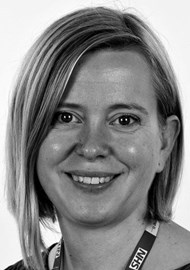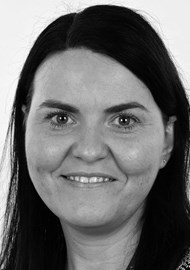For Jan/Feb 2022, we continue with the topic of the British Academy of Audiology Higher Training Scheme. We hear from Jane Beavan, Clinical and Professional Lead for Audiology/Clinical Scientist in Audiology, and Kim-Maree Collings, Senior Audiologist, from the Countess of Chester NHS Foundation Trust as they discuss how the scheme was implemented in their audiology department.
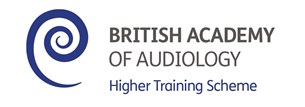
The BAA Higher Training Scheme (HTS) is a modular postgraduate training programme, with modules in paediatrics, balance, therapeutics and advanced auditory areas. The scheme involves gaining advanced knowledge through M-level course credits, tutorials, self-study and discussion, and significant clinical training logged online under the direction of an accredited supervisor. Modules can be selected to meet the need of departments, for example for succession planning retiring, or for individual development and career progression.
Jane Beavan, Clinical and Professional Lead for Audiology and Kim-Maree Collings, Senior Audiologist and HTS candidate, both from the Countess of Chester Hospital NHS Foundation Trust, discuss their experiences of the HTS scheme.
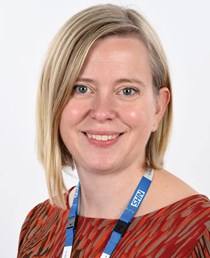
Jane Beavan
How have you used the HigherTraining Scheme in your department?
We identified a skill gap within our service in the areas of balance assessment and paediatric assessment. Rather than advertise externally, I decided to look at ways in which we could develop our own staff to fill these gaps; reviewing the different options available I came to the conclusion that completion of the relevant modules from the Higher Training Scheme (HTS) was the most efficient way to achieve this. We have three members of staff currently completing HTS modules in paediatric assessment (six months+), paediatric assessment (newborn) and balance assessment and rehabilitation.
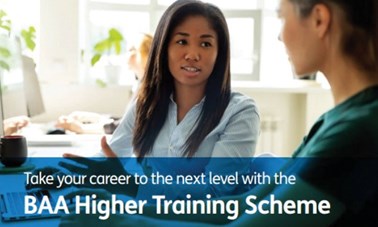
What have been the benefits of the Higher Training Scheme to your service?
There are definitely benefits to using the HTS over in-house training. The content of the HTS modules has been reviewed and agreed by subject experts as the range of skills and knowledge required when working in a particular specialist area. It also includes external assessment of your skills, and results in a recognised qualification you can add to your CV to demonstrate your competency in the particular specialist area. In-house training can vary significantly in scope and quality, and doesn’t result in a recognised qualification. Whilst there is a financial component to the HTS which you would not necessarily incur with in-house training, in my opinion the potential benefits of the HTS are worth the investment. Using the HTS has been a very effective tool for promoting staff development, not only increasing their skill set but also building their confidence, credibility and motivation. Staff feel valued and re-energised which leads to increased retention. Unlike the Scientific Training Programme, the modular structure of the HTS means that it can be individually tailored to your service needs and is more time efficient, facilitating succession planning for the future.
“Using the HTS has been a very effective tool for promoting staff development, not only increasing their skill set but also building their confidence, credibility and motivation”
Would you recommend the Higher Training Scheme to other service leads?
Absolutely. Historically the HTS has been viewed as a route to obtaining registration as a clinical scientist and, as a result, the potential benefits of the scheme to service leads looking for options to meet training needs within their own service have been overlooked. I would urge any service leads to consider the HTS as part of their ongoing skill mix reviews.
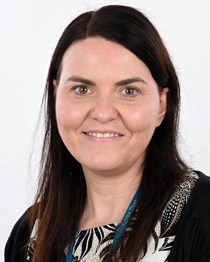
Kim-Maree Collings
Why did you decide to participate in the Higher Training Scheme?
I was very lucky to have the opportunity to be funded to undertake an HTS module within my new Band 6 job role. It is a wonderful opportunity to expand your knowledge and clinical expertise in a specialist clinical area. Sometimes as a Band 5 or 6 there might not be many opportunities to progress in your career in a certain specialist area, so the HTS makes that opportunity possible.
What has this involved for you?
This has involved completing the MSc Vestibular Module at university (which really does provide you with the underlying knowledge), in-house training (to observe and practise your clinical skills), placements/secondments in other hospitals (it’s very interesting to see how other departments perform histories, tests and rehabilitation; this adds to your clinical skills too) and placements in other multidisciplinary areas. I had a placement with the falls clinic which was very exciting and helpful to be aware of within this specialism. Performing/presenting case studies for colleagues has been a good way of expanding my own knowledge and skills and also making other colleagues aware of the available onward referrals - for example, patients are falling due to their dizziness.
“Sometimes as a Band 5 or 6 there might not be many opportunities to progress in your career in a certain specialist area, so the HTS makes that opportunity possible”
How long does it take to complete the modules?
It has been a longer process for me than planned due to COVID and the replacement of our balance equipment, but I am planning to complete the module and take my exam within the next 12 months.
How have you benefited (or how do you expect to benefit) from this form of training?
This has increased my clinical skills, theoretical knowledge and given me the opportunity to progress in my career. It is giving me the confidence to put these skills into practice to assess and manage balance patients.
Would you recommend the Higher Training Scheme to others?
Yes, I would. I am really enjoying my training, both in my own department and whilst attending other departments on placements. It is very important to have regular meetings with your clinical supervisor to assess your progress and to arrange tutorials, placements and secondments.
Where can I find out more?
For more information about the Higher Training Scheme please see the BAA website; https://www.baaudiology.org/careers/hts/.
BAA members can access further details under the members’ area of the website. Specific enquiries should be sent to HTSenquiries@baaudiology.org


